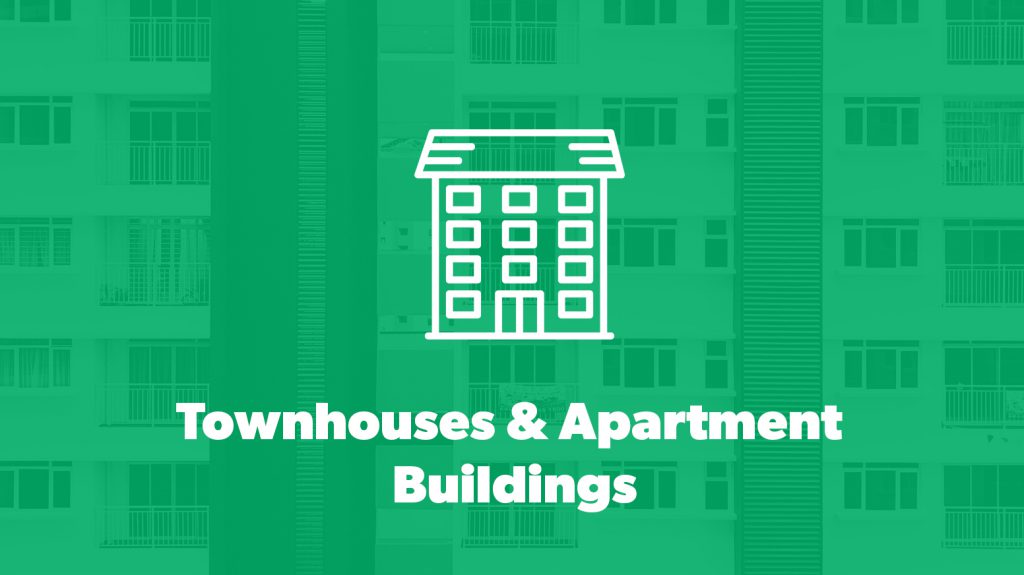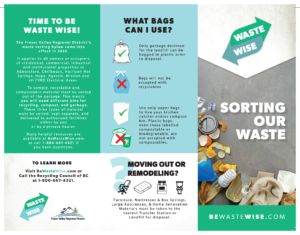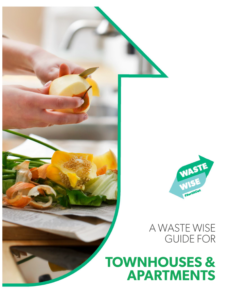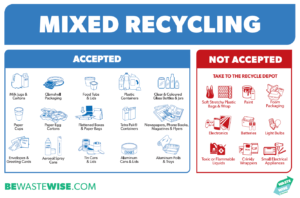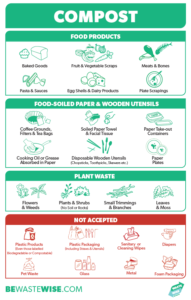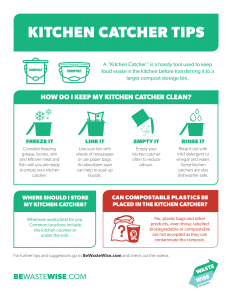-
How do I get the sorting system set up for my building?
Identify who is in charge of managing waste collection at your strata (is it the strata council/building manager/ strata management company?). Get the topic of expanding your waste collection on your next strata council meeting agenda and direct them to www.fvrd.ca for information on the bylaw and how your strata can comply.
-
Our building doesn’t currently collect compostables. How do we start getting our compostables collected?
Developing a compostables collection plan is a good first start. This plan could include:
• Roles and responsibilities (Who will contact the hauler or city to find out hauling options? Who will make decisions about informing residents?)
• Timing (When can your building be ready to start a full program? What is the best way to encourage and sustain participation? Is it reasonable to start a few floors/units at a time to build participation?
• Communication strategy (Will residents be informed with elevator notices/ door-to-door introductions/ a meeting? How much follow-up information will be provided after the program is initiated?)
-
Our townhouse has curbside collection for each unit, where can we get bins for compost collection?
Ask your waste hauler if they would provide bins for each unit. If owners are responsible for purchasing their own bins, find out what size/style the hauler will accept. Curbside collection bins can be purchased at local hardware stores such as Home Depot, Walmart, Canadian Tire, and Rona.
-
What is a kitchen catcher? Where can I get one for my kitchen?
A kitchen catcher is a counter-top (or under-sink) container with a lid that you use in your kitchen that can be carried to and from the communal compostables bins and easily emptied, and cleaned. Many stores (such as Home Depot, Walmart, Canadian Tire, Rona etc.) sell them, or residents can also make their own (a lidded coffee tin, a large yoghurt container, or a glass bowl with a plate on top). Use something you can line with newsprint and seal with a lid to reduce any potential odours.
-
Can I use my food grinder or in-sink garburator to dispose of kitchen scraps instead of a backyard composter or compost bin?
There is no regulation about using in-sink garburators, but composting is a preferable option.
In-sink garburators result in food waste in the sewer system where it puts extra pressure on wastewater treatment plants. Sewer water is treated before being released into the environment, and it is costly to treat large volumes of food at the sewage plants.
In-sink garburators require a lot of drinking water to move food through home and City wastewater pipes, and through city pipes to the wastewater treatment plants. Bones and starchy food such as rice can create clogs that are expensive to fix. This is not a smart use of water and composting is a better option.
Through composting, food waste can be turned into valuable resources. Potential end products include soil amendments, soil nutrients and even biofuel, which has become a viable alternative to fossil fuels.
Remember to never pour grease in the drain as it will solidify when cooled and clog the pipes. Solids that follow can stick to the solid grease, stop the flow of materials and cause it to overflow. The better option is to wait for the grease to cool down, solidify, and then put it in your food waste bin (but not the container it hardened into).
Food-soiled paper such as paper plates, paper towels and napkins can also go in your food waste bin.
-
Will our strata be fined if other residents put plastic and packaging in our shared compostables collection bins?
Like all recycling, a communal food waste bin requires everyone to follow the same rules. Your compostables hauler will identify if there are plastic bags, food ties, or food packaging in your bins and can suggest ways to avoid this contamination. To improve your food waste recycling program, consider providing residents with bin liners that are accepted by your waste hauler. Use consistent informational signage and provide friendly reminders.
-
My building has a tiny recycling room and there is no space for compostables bins. What can I do?
Your waste hauler may be able to recommend a solution. Some options include decreasing garbage bin sizes (remember that increased recycling and composting means less garbage!) or increasing collection frequency.
-
Can we keep compost bins outside? Won’t a compostables bin attract pests and smell in the summer?
If compost bins need to be kept outside, pests and odour can be kept to a minimum with regular emptying and cleaning.
Residents can line their kitchen catchers with newsprint and wrap greasy or wet food waste in newsprint to absorb moisture, which will reduce odours and prevent flies. The soiled newspaper liners can go in the composting bin. Freezing meat scraps and bones until you are ready to empty out your kitchen catcher can help reduce odours. Check out the Tips on how to keep your Kitchen Catcher clean.
Talk to your hauler about options such as:
• Switching in clean bins after collection
• Using a bin liner approved by the composting facility when available
• Having bins cleaned at time of collection
• More frequent collection during hot weather.
Commercial bin-cleaning services are available.
-
Can I line my kitchen catchers with plastic bags? What about those labelled biodegradable or compostable?
Use only paper bags to line your kitchen catcher and/or compost bin. Plastic bags, even those labelled biodegradable or compostable are not accepted by most waste haulers and composting facilities as they get entangled in machinery, contaminate compost and reduce its value.
-
What happens if I don’t participate?
Financial penalties may apply to building owners/managers/stratas that don’t comply.

